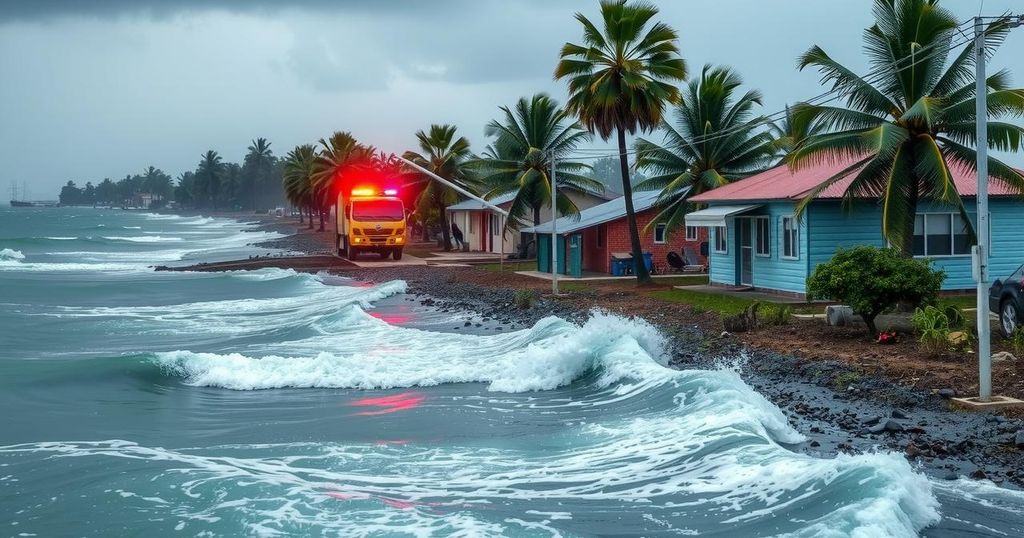Mozambique’s Ongoing Humanitarian Crisis: Impact of Cyclone Chido and Conflict

Mozambique is facing a complex emergency with 3.3 million individuals experiencing acute food insecurity and 2.3 million in need of humanitarian assistance. The recent Tropical Cyclone Chido has led to 73 deaths and left 329,500 in need of aid. Conflict-induced displacement in northern regions raises protection concerns, complicating recovery efforts.
As of fiscal year 2025, Mozambique is grappling with a complex emergency, exacerbated by various crises, including the recent impact of Tropical Cyclone Chido which made landfall on December 15, resulting in significant loss of life and displacement. Reports indicate that approximately 3.3 million individuals are facing acute food insecurity from November to February, alongside 2.3 million people who require humanitarian assistance across the nation. Furthermore, conflict and ongoing violence in northern regions have displaced 717,000 individuals, hindering humanitarian access and escalating protection concerns.
The cyclone has left an estimated 329,500 people in urgent need of assistance, with many households already depleting their food stocks due to below-average harvests this past season. The Integrated Food Security Phase Classification (IPC) notes that approximately 10 percent of the population may experience Crisis levels of food insecurity during the lean season, highlighting the severity of current conditions. \n\nThe International Organization for Migration (IOM) reports that approximately 611,000 individuals have returned to their areas of origin; however, the ongoing violence particularly in Cabo Delgado Province continues to disrupt stability and provoke fears within communities. The situation necessitates immediate and concerted humanitarian efforts to address both the immediate needs resulting from the cyclone and the enduring challenges posed by conflict and food insecurity.
The situation in Mozambique has been compounded by a series of natural disasters and socio-political factors that have devastated local populations. As of late 2024, the country has been experiencing rising levels of displacement attributed to violence and conflict, particularly in the Cabo Delgado Province, a region that has faced ongoing insurgency. Tropical Cyclone Chido further intensified existing humanitarian crises, affecting infrastructure and basic services, making the need for international assistance crucial to aid impacted communities through this multifaceted emergency.
In summary, Mozambique’s current crisis necessitates urgent attention as millions face the dual challenges of food insecurity and displacement exacerbated by recent natural disasters. The impact of Tropical Cyclone Chido has intensified the humanitarian need, illustrating the pressing requirements for assistance and intervention in order to stabilize the affected populations and restore their livelihoods. The continued conflict in the northern regions further complicates recovery efforts, emphasizing the importance of comprehensive and coordinated humanitarian responses.
Original Source: reliefweb.int








